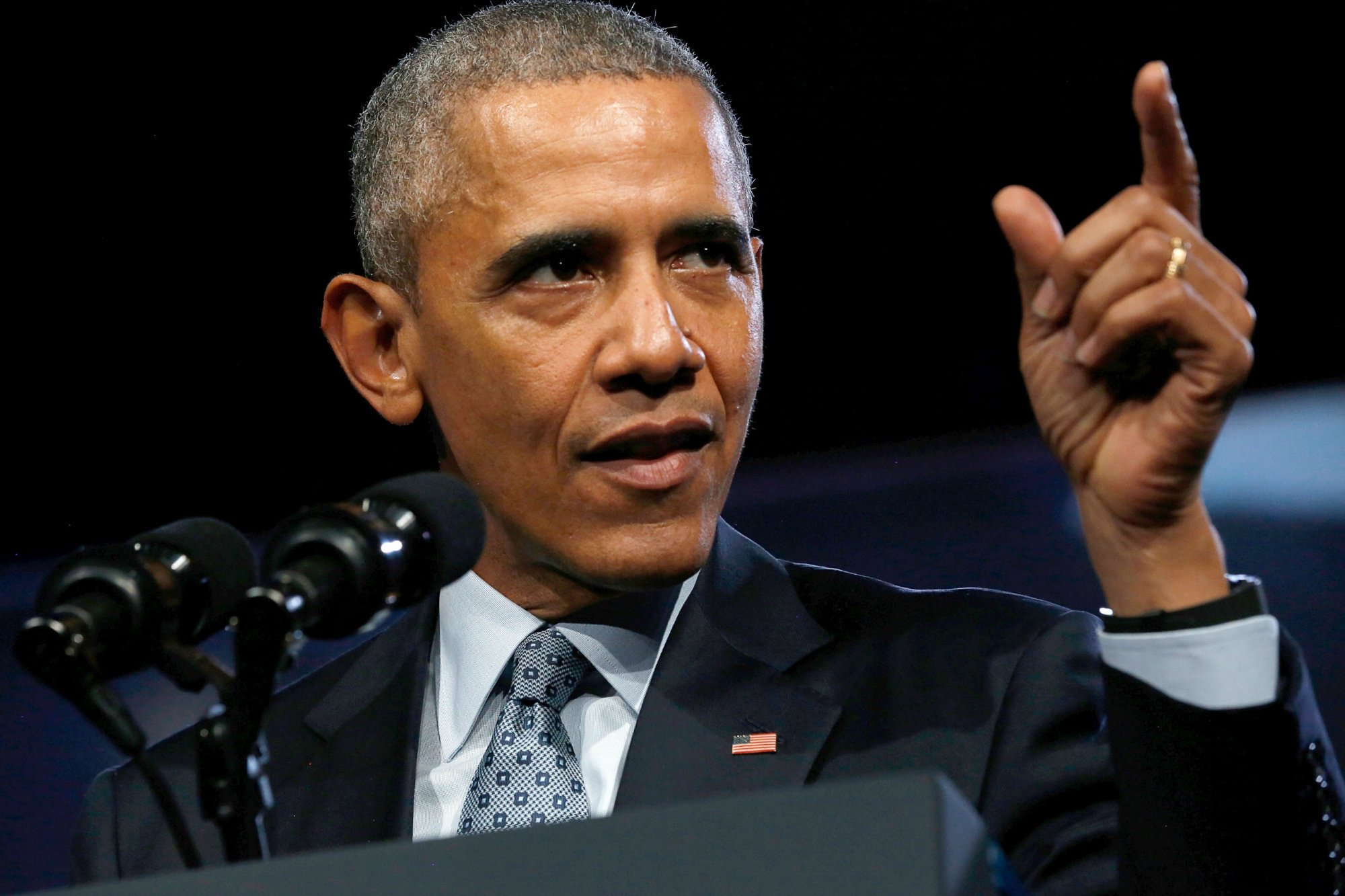 Former US President Barack Obama, Photo by Joshua Ernst/Reuters
Former US President Barack Obama, Photo by Joshua Ernst/Reuters President Donald Trump was quick to blame his predecessor, President Obama, for the horrors taking place in Syria. In Israel, commentators and former officials voiced similar claims. President Obama, they said, enacted a policy that is partially responsible for the actions of President Bashar Assad. He drew a “red line” – his red line was the use of chemical weapons. Then, when tested by Assad, he reneged. Then, lured by the Russians, he decided to trust a diplomatic solution to the crisis. His actions were not without reason (I explained some of them in detail here), but the consequences were clear: the US lost its ability to deter Assad, and with it any shred of influence over events in Syria.
But why blame just Obama? What was it in his actions that is worth singling out? Maybe it is the hypocrisy: The President tended to use big words unbacked by actions. Maybe it is the naiveté: The President believed that he could use words to deal with those who only understand force. But when it comes to Syria, Obama deserves blame no more than many others. France could have intervened and did not do it, and the same goes for Britain, and Germany, and China, and Israel. Each of these countries – not to mention Russia – has enough power to make Assad regret his cold decision to use chemical weapons. Yet these countries decided to stay put. Neither Obama, nor Holland, nor Cameron, nor Merkel, nor Netanyahu intervened. All of them made the same calculated choice: Why do I need this as my responsibility? If you want to blame them for something, it is this: They prioritized the interests of their voters and constituents – of Britain, of China – over the interests, and the lives, of the poor Syrians.
Choosing to point at Obama alone stems from a wide gap between expectations and actions. All over the world, people expect more from America; and when America decides to act much like everyone else (that is, do nothing), there is disappointment. So it is very possible that the problem here is not Obama (or Donald Trump, assuming he also decides to do nothing – and this is still unclear). The problem here is the rest of us. The problem here is the expectations that people around the world have from a faraway nation, busy with itself, which has no special appetite to keep playing the role of world policeman. Obama did not solve Syria’s problems, and he did not solve the Israeli-Palestinian conflict, and he did not stop Iran’s quest to become a nuclear power. Obama ignored what he could ignore, and postponed what he couldn’t just ignore. Syria was not a priority for him. Deterring Assad was never a priority for him. Up until yesterday, it was not a priority for Trump either.
For us, residents of non-American countries, there are lessons to be learned from this. The first of these lessons: we need to be strong militarily. Those who want to base their security on soft power, or cunning diplomacy, or great friendship with other countries, or empathy, or local agreements, or global regimes, or international law – all these should recalculate their strategy. In tough areas such as the Middle East, those who have military power will survive, and those who don’t will not. Israel must face this reality soberly, if not gladly, every time it ponders its budgetary priorities, every time it considers its other concerns, every time it debates a peace treaty, or a draft of a peace treaty, or whatever.
But this is not the only lesson to be learned from recent events in Syria. Israel ought to also learn something about its relations with America. The Americans will not save Israel. And even if they promise to do so, they will still not save it. And if they give guarantees, Israel will not always be able to trust them. Thus, it is better not to make them the cornerstone of Israel’s strategy. And what this means is that Israel is not just allowed to reject American proposals, to dodge American pressure, and to avoid American initiatives if they are based on the assumption that America can be the guarantor of Israel’s security – Israel must do all these things: reject, dodge, avoid. And, of course, Israel would be more than justified in laughing off American, and other countries’, moral lecturing.
And of course, all this must be done politely and considerately, because the US is still Israel’s strong and reliable ally. The US is still much better on most things than most other countries. And yet, it is crucial to remember that there is politeness and there is essence, and the two aren’t one and the same. Israel does not wish to have disagreements with the Trump administration – but it has an interest to defend its diplomatic and security needs. Israel wishes to have an open, honest, and friendly dialogue with the US, but it must keep its ability to defend itself by itself.
And truly, as Israel engages in talks with the Americans – whether it is about the Palestinians, or Iran, or other issues – the prospect of disagreement that leads to open strife is unsettling. Relations between the Israeli government and the Obama administration were unsettling. The idea of having similar disagreements with the Trump administration is unappealing.
But one look to the north-east clarifies matters: Relying on anyone to save us in a time of need is even less appealing.























 More news and opinions than at a Shabbat dinner, right in your inbox.
More news and opinions than at a Shabbat dinner, right in your inbox.